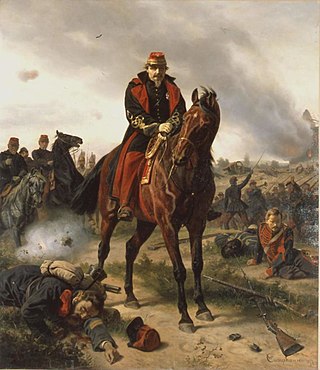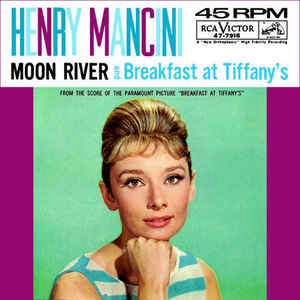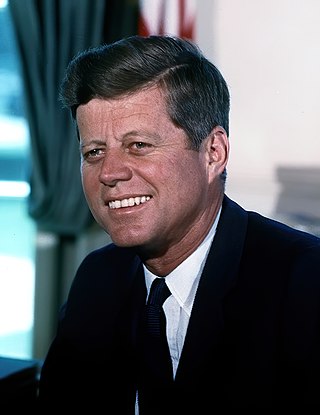
Ashoka, also known as Asoka or Aśoka, and popularly known as Ashoka the Great, was Emperor of Magadha from c. 268 BCE until his death in 232 BCE, and the third ruler from the Mauryan dynasty. His empire covered a large part of the Indian subcontinent, stretching from present-day Afghanistan in the west to present-day Bangladesh in the east, with its capital at Pataliputra. A patron of Buddhism, he is credited with playing an important role in the spread of Buddhism across ancient Asia.

The Berlin Wall was a guarded concrete barrier that encircled West Berlin from 1961 to 1989, separating it from East Berlin and the German Democratic Republic. Construction of the Berlin Wall was commenced by the government of the GDR on 13 August 1961. It included guard towers placed along large concrete walls, accompanied by a wide area that contained anti-vehicle trenches, beds of nails and other defenses. The primary intention for the Wall's construction was to prevent East German citizens from fleeing to the West.

Yuri Alekseyevich Gagarin was a Soviet pilot and cosmonaut who, aboard the first successful crewed spaceflight, became the first human to journey into outer space. Travelling on Vostok 1, Gagarin completed one orbit of Earth on 12 April 1961, with his flight taking 108 minutes. By achieving this major milestone for the Soviet Union amidst the Space Race, he became an international celebrity and was awarded many medals and titles, including his nation's highest distinction: Hero of the Soviet Union.

The United Arab Republic was a sovereign state in the Middle East from 1958 until 1961. It was initially a short-lived political union between Egypt and Syria from 1958 until Syria seceded from the union following the 1961 Syrian coup d'état. Egypt continued to be known officially as the United Arab Republic until it was formally dissolved by Anwar Sadat in September 1971.

The Twenty-third Amendment to the United States Constitution extends the right to participate in presidential elections to the District of Columbia. The amendment grants to the district electors in the Electoral College, as though it were a state, though the district can never have more electors than the least-populous state. How the electors are appointed is to be determined by Congress. The Twenty-third Amendment was proposed by the 86th Congress on June 16, 1960; it was ratified by the requisite number of states on March 29, 1961.

Sword-and-sandal, also known as peplum, is a subgenre of largely Italian-made historical, mythological, or biblical epics mostly set in the Greco-Roman antiquity or the Middle Ages. These films attempted to emulate the big-budget Hollywood historical epics of the time, such as Samson and Delilah (1949), Quo Vadis (1951), The Robe (1953), The Ten Commandments (1956), Ben-Hur (1959), Spartacus (1960), and Cleopatra (1963). These films dominated the Italian film industry from 1958 to 1965, eventually being replaced in 1965 by spaghetti Western and Eurospy films.

The Battle of Sedan was fought during the Franco-Prussian War from 1 to 2 September 1870. Resulting in the capture of Emperor Napoleon III and over a hundred thousand troops, it effectively decided the war in favour of Prussia and its allies, though fighting continued under a new French government.

"Moon River" is a song composed by Henry Mancini with lyrics by Johnny Mercer. It was originally performed by Audrey Hepburn in the 1961 film Breakfast at Tiffany's, winning an Academy Award for Best Original Song. The song also won the 1962 Grammy Awards for Record of the Year and Song of the Year. In 1999, Mancini's recording was inducted into the Grammy Hall of Fame.

Nogometni klub Istra 1961, commonly referred to as Istra 1961, is a Croatian professional football club based in Pula, that competes in the Croatian First League.

The 87th United States Congress was a meeting of the legislative branch of the United States federal government, composed of the United States Senate and the United States House of Representatives. It met in Washington, D.C. from January 3, 1961, to January 3, 1963, during the final weeks of Dwight D. Eisenhower's presidency and the first two years of John Kennedy's presidency. The apportionment of seats in the House of Representatives was based on the 1950 United States census, along with two seats temporarily added in 1959.

The 1961 NFL season was the 42nd regular season of the National Football League (NFL). The league expanded to 14 teams with the addition of the Minnesota Vikings, after the team's founders declined to be charter members of the new American Football League. The schedule was also expanded from 12 games per team to 14 games per team where it would stay for 17 years. The Vikings were placed in the Western Division, and the Dallas Cowboys were switched from the Western Division to the Eastern Division. The addition of the Vikings returned the NFL to an even number of teams.

The 1961–62 European Cup was the seventh season of the European Cup, UEFA's premier club football tournament. The competition was won by Benfica for the second time in a row, beating Real Madrid 5–3 in the final at the Olympisch Stadion, Amsterdam, on 2 May 1962. This outcome meant that Real Madrid became the first team to win and lose European Cup final. Ferenc Puskás scored his second hat-trick in the final of the competition, and as of 2024, is the only player to achieve this feat, as well as being the only final hat-trick scorer to end up on the losing side.
The 1961–62 season of the European Cup Winners' Cup club football tournament was won by Atlético Madrid of Spain in a replayed final against holders Fiorentina. It was the first season of the tournament to be directly organised by UEFA.

John Fitzgerald Kennedy, also known as JFK, was the 35th president of the United States, serving from 1961 until his assassination in 1963. He was the youngest person elected president. Kennedy served at the height of the Cold War, and the majority of his foreign policy concerned relations with the Soviet Union and Cuba. A Democrat, Kennedy represented Massachusetts in both houses of the United States Congress prior to his presidency.

The Berlin Crisis of 1961 was the last major European political and military incident of the Cold War concerning the status of the German capital city, Berlin, and of post–World War II Germany. The crisis culminated in the city's de facto partition with the East German erection of the Berlin Wall.

Robert Francis Kennedy, also known as RFK, was an American politician and lawyer. He served as the 64th United States attorney general from January 1961 to September 1964, and as a U.S. senator from New York from January 1965 until his assassination in June 1968, when he was running for the Democratic presidential nomination. Like his brothers John F. Kennedy and Ted Kennedy, he was a prominent member of the Democratic Party and is considered an icon of modern American liberalism.

The 1961 Los Angeles mayoral election took place on April 4, 1961, with a runoff election on May 31, 1961. Incumbent Norris Poulson was defeated by Sam Yorty, a former U.S. Representative.

The Non-Aligned Movement (NAM) is a forum of 120 countries that are not formally aligned with or against any major power bloc. It was founded with the view to advancing interests of developing countries in the context of Cold War confrontation. After the United Nations, it is the largest grouping of states worldwide.

















